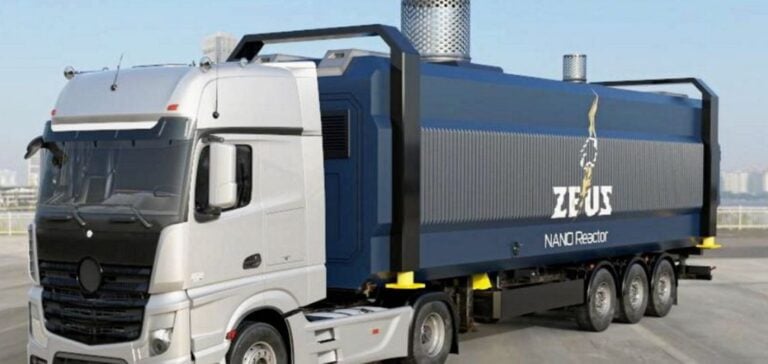NANO Nuclear Energy Inc, an emerging company specializing in microreactors and advanced nuclear technologies, has appointed Massimiliano Fratoni, Ph.D., Xenel Distinguished Professor and Head of the Nuclear Engineering Department at UCB (University of California, Berkeley), as Senior Director and Head of Reactor Design. Professor Fratoni brings to NANO Nuclear ‘s extensive expertise in advanced reactors and fuel cycles. Its research is aimed at developing innovative engineering solutions to facilitate the large-scale deployment of advanced nuclear technologies. Author of over 200 publications, he has received several awards, including the American Nuclear Society Early Career Reactor Physicist Award in 2018 and the Untermyer & Cisler Reactor Technology Medal in 2024.
ZEUS, a portable, versatile microreactor under development
NANO Nuclear’s “ZEUS” microreactor, currently under development, is designed to generate 1 to 2 megawatts of electricity. It’s a safe, portable, solid-core reactor designed to meet the diverse needs of many sectors: data centers, quantum computing, cryptocurrency mining, military applications, disaster relief, remote regions, transportation and shipping, mining projects, desalination plants, green hydrogen production, and even space exploration. The flexibility and simplicity of the ZEUS design, the fruit of Professor Fratoni’s labors, will enable NANO Nuclear to serve a wide variety of industries and niches in an unprecedented way. The company is aiming for a commercial launch of its microjet engines around 2030.
A top-class team to revolutionize the nuclear industry
Jay Yu, Executive Chairman of NANO Nuclear Energy, and James Walker, Managing Director and Head of Reactor Development, are delighted with the arrival of Professor Fratoni. They underline the outstanding quality of the company’s technical and management team, which puts NANO Nuclear in an ideal position to capitalize on the growing potential of the nuclear industry in the years to come. NANO Nuclear intends to become a diversified, vertically integrated company, covering four business areas: advanced portable microreactors, nuclear fuel fabrication, nuclear fuel transportation and consulting services. Together with its subsidiaries AFT (Advanced Fuel Transportation Inc.) and HEF (HALEU Energy Fuel Inc.), the company aims to form the only fully integrated nuclear fuel supply chain in North America.
Professor Fratoni’s recruitment reflects NANO Nuclear’s ambition to be at the forefront of the nuclear industry. With its expertise and leadership, the company intends to play a key role in the transition to cleaner, more sustainable energy solutions, by developing advanced microreactors to meet the diverse needs of the market.






















